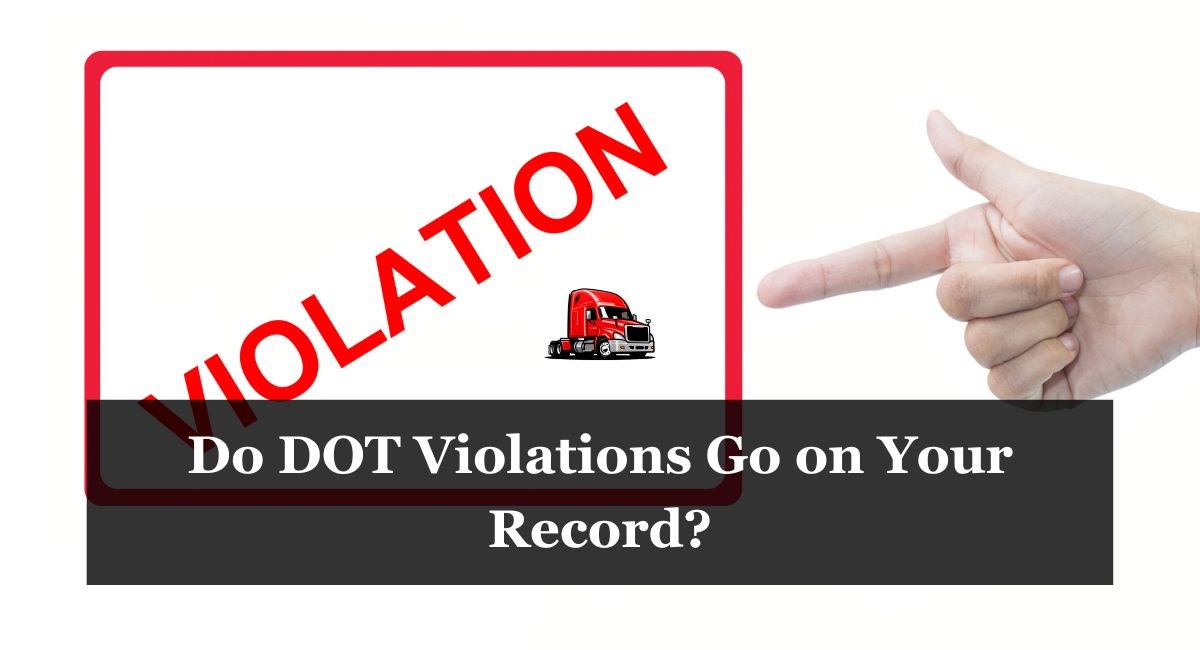Truck drivers, carriers and brokers must adhere to various rules and regulations set out by the DOT (Department of Transportation). From minor issues such as paperwork to significant safety concerns, violations can have devastating repercussions for those involved in transportation services.
Truck drivers cannot always control issues beyond their own control. Still, they can take steps to help avoid DOT violations, such as using an essential fleet compliance checklist and conducting regular walkaround inspections.
Types of DOT Violations
Serious Violations:
Serious violations encompass safety hazards such as driving under the influence, exceeding maximum weight limits, or neglecting proper vehicle maintenance.
Non-Serious Violations:
Non-serious violations typically involve administrative errors like incomplete logbooks, expired documentation, or minor paperwork discrepancies.
Consequences of DOT Violations
Serious violations often result in fines, license suspensions, or legal actions. These severe infractions can significantly impact your record and future employability. Non-serious violations might lead to fines but usually have a lesser impact on your long-term record.
Does It Impact Your Driving Record?
Yes, DOT violations can affect your driving record and cause severe infractions. These violations stay on your record for several years, influencing insurance rates and potentially affecting your eligibility for specific jobs within the transportation industry.
What Happens if You Get a DOT Violation?
DOT violations can be frustrating for truck drivers and carriers. Not only are they difficult to manage, but their effects can have severe repercussions for business operations if not dealt with quickly and properly.
Furthermore, any delays could become costly over time.
Truckers and carriers alike can fall prey to a range of DOT violations that they should be wary of, including:
Drivers may also be charged with violations related to vehicle inspection issues, such as brakes, lights or tires that do not function optimally. Other violations may include failing to secure cargo improperly and adequately calibrating or maintaining their truck’s odometer.
Truckers can also be fined for violating Hours of Service rules, such as exceeding the 14-hour daily or 60-hour weekly limit, and for log accuracy issues like inaccurate trip records, dispatches, payroll sheets or fleet communications. These incidents could result in fines or legal action from FMCSA in severe cases; possibly leading to suspension of operating authority altogether.
How DOT Violations Affect Your CSA Score
Truck drivers may be arrested by Department of Transportation officials for violations of vehicle inspection, HOS compliance and driver qualification. Drivers who fail to meet minimum safety standards could face fines or being removed from service altogether.
Common violations in DOT include:
Lighting violations account for a considerable portion of Department of Transportation violations. They are easily preventable by regularly checking truck and trailer lights to ensure they remain functional. A good strategy is to inspect them every week.
Hours-of-service violations are another frequent DOT violation that can be avoided with leading ELD solutions that ensure accurate logging and alerts when there are errors or other problems.
Driving violations such as speeding and improper lane changing are among the most frequently occurring DOT violations and should be prevented by encouraging good driving habits, providing adequate training and maintaining compliance with safety standards set by fleet managers.
How DOT Violations Affect Your License
The Department of Transportation provides guidelines that must be observed by drivers and carriers who wish to remain compliant, with penalties including fines or license suspension. Violations may impact individual truckers or carriers, while others could affect an entire fleet or company.
One of the most frequently occurring Department of Transportation violations involves failing to obey traffic safety devices, such as red lights and stop signs. Hours of Service regulations present another significant risk of breaches as they require truckers to take rest breaks during their shift to prevent fatigue from setting in.
As various methods are available to avoid DOT violations, investing in an ELD solution that provides real-time alerts on HOS violations is one of the best ways. Doing this may help drivers and companies avoid being placed out of service; additionally, fleets who prioritize hiring safety vehicle health and compliance measures have 17 per cent lower out-of-service rates than those who don’t prioritize these areas of their business.
How DOT Violations Affect Your Insurance Rates
Understanding DOT requirements and what they entail for your business are paramount, as is taking proactive steps to comply with them – equipment repairs or new policies implementation – sooner rather than later.
Lighting violations are among truck drivers’ most frequent DOT violations and can quickly bring down their CSA score. However, these are easily preventable with regular maintenance checks and walkaround inspections.
Speeding is another major DOT violation that can cost truckers dearly. Speeding can endanger all road users and put their CSA scores in jeopardy.
Other violations include failing to obey traffic control devices, which is especially hazardous for truckers due to extensive equipment and blind spots. Failing a drug test is another serious DOT infringement that could lead to license suspension and company fines; all this can easily be avoided by making compliance non-negotiable with your drivers.
Conclusion
Understanding the impact of DOT violations on your record is essential for navigating the complexities of the transportation industry. The types of violations, their consequences, and how to handle them are crucial in maintaining a clean record and securing future opportunities.
Promptly addressing violations and taking proactive steps can significantly mitigate their long-term impact, ensuring a safer, more secure driving career.

